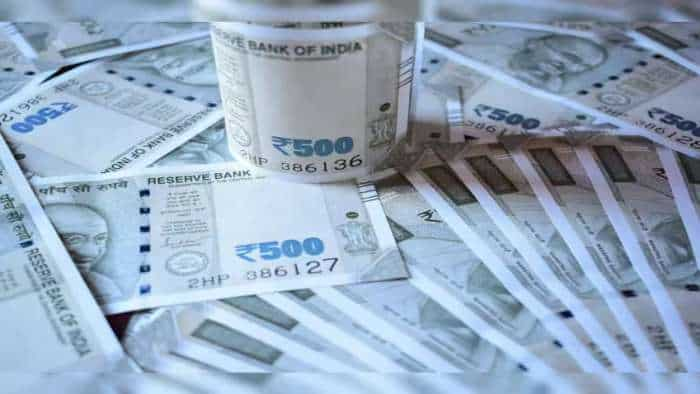December wholesale price inflation eases to 13.56%; RBI may hold rates next month
"The month over month change in WPI for the month of December 2021 stood at (-) 0.35 per cent as compared to November 2021."

Lower prices of manufactured goods and fuel slightly eased India`s December 2021 wholesale inflation on a sequential basis. The annual rate of inflation, based on wholesale prices, rose to 13.56 per cent from 14.23 per cent reported for November 2021.
However, on a year-on-year (YoY) basis, the Wholesale Price Index (WPI) data furnished by the Ministry of Commerce and Industry has risen exponentially over December 2020, when it stood at 1.95 per cent.
"The high rate of inflation in December 2021 is primarily due to rise in prices of mineral oils, basic metals, crude petroleum and natural gas, chemicals and chemical products, food products, textile and paper and paper products, etc as compared to the corresponding month of the previous year," the ministry said in its review of `Index Numbers of Wholesale Price in India` for December.
"The month over month change in WPI for the month of December 2021 stood at (-) 0.35 per cent as compared to November 2021."
The wholesale price-based inflation bucked the 4-month rising trend in December 2021, and eased to 13.56 per cent, even though food prices hardened, and experts believe the RBI is expected to hold rates steady in its monetary policy next month.
WPI inflation has remained in double digits for the ninth consecutive month beginning April. Inflation in November was 14.23 per cent, while in December 2020 it was 1.95 per cent.
Inflation in food articles, however, spiked to a 23-month high at 9.56 per cent in December, against 4.88 per cent in November. Vegetable price rise rate jumped to 31.56 per cent, against 3.91 per cent in the previous month.
In the food articles category, pulses, wheat, cereals and paddy all witnessed a month-on-month price rise, while potato, onion, fruits and egg, meat and fish saw some softening.
"The high rate of inflation in December 2021 is primarily due to rise in prices of mineral oils, basic metals, crude petroleum & natural gas, chemicals and chemical products, food products, textile and paper and paper products etc as compared to the corresponding month of the previous year," the Commerce and Industry Ministry said in a statement.
Inflation in manufactured items was lower at 10.62 per cent in December, against 11.92 per cent in the previous month.
In fuel and power basket the rate of price rise was 32.30 per cent in December, against 39.81 per cent in November.
Data released earlier this week showed, retail inflation based on Consumer Price Index (Combined) rose to 5.59 per cent in December, from 4.91 per cent a month ago as food prices inched up.
ICRA Chief Economist Aditi Nayar, said the food inflation has spiked from the marginal 0.1 per cent in October 2021, to an unpleasant 23-month high of 9.6 per cent in December 2021, reflecting the unfavourable base particularly for vegetables.
"Notwithstanding the continued double-digit WPI inflation in December 2021, we expect the MPC to pause in February 2022. The duration of the current wave and the severity of restrictions will determine whether policy normalisation (change in stance to neutral along with hike in reverse repo rate) can commence in April 2022, or be delayed further to June 2022.
"Once normalisation commences, we subsequently expect two repo rate hikes of 25 bps each, followed by a pause to reassess the durability of growth," Nayar said.
The Reserve Bank of India (RBI) is slated to announce its monetary policy on February 9.
Acuit's Ratings & Research Chief Analytical Officer Suman Chowdhury said the double digit year-on-year print continues to reflect the inflationary pressures in the manufacturing and the services sector.
The data indicates that the incremental price pressures in the primary article and the fuel segments have eased in the previous month although a fresh rise in global crude prices can make such a relief temporary.
"Acuit's nevertheless expects a further pass through of input costs in manufactured goods if demand continues to revive or additional supply chain challenges surface due to the new pandemic wave. We expect continuing supply side bottlenecks, raw material shortages and high commodity prices to hold the core inflation at high levels in the near term," he added.
With Inputs from PTI
Get Latest Business News, Stock Market Updates and Videos; Check your tax outgo through Income Tax Calculator and save money through our Personal Finance coverage. Check Business Breaking News Live on Zee Business Twitter and Facebook. Subscribe on YouTube.
RECOMMENDED STORIES

SBI Latest FD Rates: This is what you can get on Rs 10 lakh investment in 1-year, 3-year, and 5-year tenures

Top 7 Large Cap Mutual Funds With Best SIP Returns in 10 Years: Rs 8,877 monthly SIP investment in No. 1 fund has jumped to Rs 28,69,944; see key details
05:21 PM IST










 WPI inflation in January eases to 4.73%
WPI inflation in January eases to 4.73% Wholesale inflation falls to 21-month low of 5.85% in November, FM Nirmala Sitharaman gives credit to PM Modi
Wholesale inflation falls to 21-month low of 5.85% in November, FM Nirmala Sitharaman gives credit to PM Modi Wholesale price inflation declines to 21-month low of 5.85% in November
Wholesale price inflation declines to 21-month low of 5.85% in November WPI Inflation hits near 2-year low at 2.45% in May, 2019 - All details here
WPI Inflation hits near 2-year low at 2.45% in May, 2019 - All details here  WPI inflation slips to 3.07 pct in April
WPI inflation slips to 3.07 pct in April